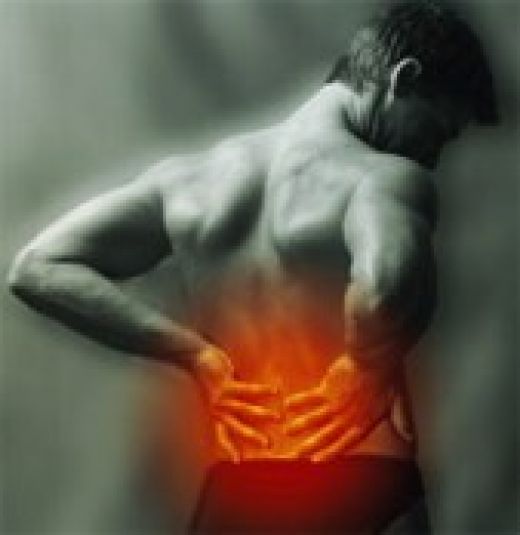
British scientists have identified a gene flaw linked to disc problems that are a common cause of lower back pain.
The study, published in the Annals of Rheumatic Diseases, looked at 4,600 people and found the PARK2 gene was linked to age-related disc problems.
A third of middle-aged women have problems with at least one spinal disc – and the condition is known to be inherited in up to 80% of patients.
Experts said finding the gene could lead to new treatments being developed.
Back pain costs the UK about £7 billion ($11 billion) a year in sickness leave and treatment costs, but the causes of the condition are not fully understood.
In lumbar disc degeneration (LDD), discs become dehydrated and lose height, and the vertebrae next to them develop bony growths called osteophytes, leading to lower back pain.
The King’s College London researchers carried out MRI scans of all those in the study and looked at differences in their genetic make-up.
They found variants of the PARK2 gene appeared to have an effect in people with degenerate discs and influence the speed at which their condition deteriorated.

The researchers, funded by the Wellcome Trust and Arthritis Research UK, say more research is now needed to find out how the gene influences the condition.
But they suggest it could be switched off in people with LDD.
And they say it could be that environmental factors – such as diet and lifestyle – could make what are known as epigenetic changes to the gene.
The researchers say that once the mechanism is fully understood, their finding could lead to the development of new treatments of lower back pain.
Dr. Frances Williams, of the department of twin research and genetic epidemiology at King’s College London, who worked on the study, said: “We know that people whose discs wear out are at increased risk of episodes of lower back pain, but normal human discs are hard to get hold of to study so until now our knowledge of normal human biology was incomplete.
“Further work by disc researchers to define the role of the PARK2 gene will, we hope, shed light on one of most important causes of lower back pain.
“It is feasible that if we can build on this finding and improve our knowledge of the condition, we may one day be able to develop new, more effective treatments for back pain caused by this common condition.”
Prof. Alan Silman, medical director at Arthritis Research UK, said: “Lumbar disc degeneration is a common cause of lower back pain, and it’s known that up to 80% of cases have a genetic basis, but this is the first time a gene has been identified as linked to this often painful and disabling condition.
“It’s a promising start and provides us with the first clue to the genetic basis of this condition, and with further research, may potentially lead to the development of more effective treatments.”